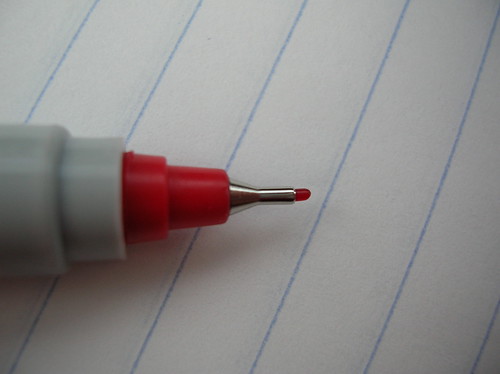The following is a guest post by Brenda Errichiello.
For an indie author, the editing process can be wholly overwhelming. Do you need a content editor? A line editor? A copy editor? What do these things even mean? How many times should someone look at your book? How do you know the person you’re working with is good?
 And even after you get through the logistics of editing, there’s the heart-stopping concern that the person you have chosen to work with will eviscerate your writing. Or you. The threat of criticism can be paralyzing–and the fear of an editor changing everything about your life’s work can keep authors from seeking them out.
And even after you get through the logistics of editing, there’s the heart-stopping concern that the person you have chosen to work with will eviscerate your writing. Or you. The threat of criticism can be paralyzing–and the fear of an editor changing everything about your life’s work can keep authors from seeking them out.
I work with a lot of indie authors. I hear these concerns all the time. And I see even more indie authors opt out of the editing process–not the proofreading process, mind you, but the actual developmental editing process–because the threat of the unknown is too much to bear.
But this resistance to seeking out help during the early stages of story conception creates a weaker book. And I don’t want that to happen to you. Indie publishing is a great opportunity to create something that’s one hundred percent yours. But just because you have ultimate control over the process doesn’t mean that you should do it alone.
When you hire an editor, what you’re really accomplishing is finding someone else to care about your book. When you have the opportunity to work intensely with an editor, especially on a developmental level, you’re inviting another person into the conversation. They’re a resource for you. Editors can help you fill in the plot holes. They can identify and improve weak character motivation. They can reflect your writing back to you and help you understand how your reader is going to react to what you have written.
The thing is, when you’re so entrenched in your work, it’s hard to see the big picture. You can see the brilliance of the world you’ve created because you’re inside of it. But every writer, even the experienced ones, can sometimes struggle with creating a complete picture and expressing their world in a way that allows others to enjoy it. Working with an editor doesn’t have to be a hack fest. It’s not all slash and burn.
In fact, a good developmental editor will help you:
- organize your story
- address audience appeal
- fine tune your pacing
- develop conflict and tension in your manuscript
- optimize the beginning and the ending of the story, and
- identify the parts of your book that just are not working
Editing in the late game of book production is essential, don’t get me wrong. But there’s a reason that editors in publishing houses work through author’s revisions for months, sometimes years, before sending them to the proofreader. Assembling the foundation of a book is a monumental project, and it’s essential to have someone else to help you identify and then incorporate all of the loose ends. Seeking out help doesn’t mean that you’re weak. It makes you a smart indie author. Every change and suggestion your editor makes will help you learn how to craft your book–and the editing process should ultimately result in making you a better writer.
Essentially, working with your editor on the foundation of your story is a process, not an event. Writing grows through conversation. Don’t expect to feed your manuscript into a machine and receive a ten step plan for the perfect book. Your editor will share her reaction and give you suggestions for improvement, but book-building is a process, as I am sure you know. When you sign up for content editing or developmental editing, your editor will help you make your book better–but only if you come ready and willing to match her work with your own.
Even so, don’t be afraid to ask your editor how she will help you. You’re investing in a creative partner for your book. Spend time on Skype and send emails. But don’t let the intimidation factor of developmental editing keep you from allowing your book to become the best it can be. Reach out. We’d love to be of service.
About Brenda
 Brenda Errichiello has been editing books of all shapes, sizes, and genres since 2004. She launched her business, the Eclectic Editor, last year and still can’t believe she’s actually getting paid to do what she loves most — read!
Brenda Errichiello has been editing books of all shapes, sizes, and genres since 2004. She launched her business, the Eclectic Editor, last year and still can’t believe she’s actually getting paid to do what she loves most — read!
The Winner of the FREE Comprehensive Edit Giveaway!
a Rafflecopter giveawayCongratulations, Emily! 
 We're
We're 








